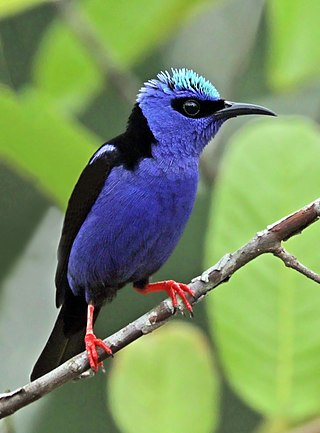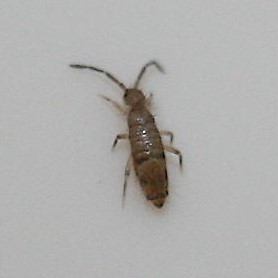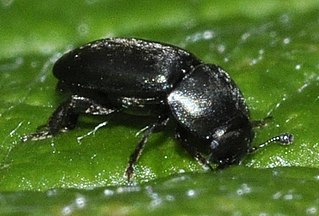
A harrier is a member of the genus Circus in the a bird of prey family Accipitridae. Harriers characteristically hunt by flying low over open ground, feeding on small mammals, reptiles, or birds. The young of the species are sometimes referred to as ring-tail harriers. They are distinctive with long wings, a long narrow tail, the slow and low flight over grasslands and skull peculiarities. The harriers are thought to have diversified with the expansion of grasslands and the emergence of C4 grasses about 6 to 8 million years ago during the Late Miocene and Pliocene.

The hen harrier is a bird of prey. It breeds in Eurasia. The term "hen harrier" refers to its former habit of preying on free-ranging fowl.

The superb fairywren is a passerine bird in the Australasian wren family, Maluridae, and is common and familiar across south-eastern Australia. It is a sedentary and territorial species, also exhibiting a high degree of sexual dimorphism; the male in breeding plumage has a striking bright blue forehead, ear coverts, mantle, and tail, with a black mask and black or dark blue throat. Non-breeding males, females and juveniles are predominantly grey-brown in colour; this gave the early impression that males were polygamous, as all dull-coloured birds were taken for females. Six subspecies groups are recognized: three larger and darker forms from Tasmania, Flinders and King Island respectively, and three smaller and paler forms from mainland Australia and Kangaroo Island.

The red-legged honeycreeper is a small songbird species in the tanager family (Thraupidae). It is found in the tropical New World from southern Mexico south to Peru, Bolivia and central Brazil, Trinidad and Tobago, and on Cuba, where possibly introduced. It is also rarely found in southern Texas.

Entomobryidae, sometimes called "slender springtails", is a family of springtails characterised by having an enlarged fourth abdominal segment and a well-developed furcula. Species in this family may be heavily scaled and can be very colourful. The scale-less Entomobryidae are commonly caught in pitfall traps around the planet, and also occur in canopy faunas high up in trees. There are more than 1700 described species in Entomobryidae.

The blue pitta is a species of bird in the family Pittidae found in the northeastern Indian subcontinent, southern China, and Indochina. It typically lives in moist forests but can also inhabit dry forest. It is an unobtrusive, solitary bird which feeds by foraging on the ground for insects and other small invertebrates.
Haplochromis sp. nov. "Blue Rockpicker" is a species of cichlid endemic to the Tanzanian part of Lake Victoria. Its natural habitat is freshwater lakes. This species grows to a length of 10.7 centimetres (4.2 in) SL.

Meinmahla Kyun Wildlife Sanctuary is a protected area in Myanmar with an extent of 500 km2 (190 sq mi) and one of the ASEAN Heritage Parks. Meinmahla Kyun is an island in the Ayeyarwady Delta ranging in elevation from 0 to 30 m and covered by mangrove forest. It was declared a Ramsar site in 2017.
Anthophylax cyaneus is a species of Long-Horned Beetle in the beetle family Cerambycidae. It is found in Canada and United States of America.

Penstemon cyaneus is a species of flowering plant in the plantain family known by the common names blue penstemon and dark blue penstemon. It is native to the western United States, where it is widespread in Idaho and also found in parts of Montana and Wyoming.

Indolestes cyaneus is a species of spreadwing in the damselfly family Lestidae.
Teleorhinus cyaneus is a species of plant bug in the family Miridae. It is found in North America.

Meligethes is a genus of pollen beetles in the family Nitidulidae. There are more than 80 described species in Meligethes.
Lepidocyrtus cinereus is a species of slender springtail in the family Entomobryidae.
Lepidocyrtus neofasciatus is a species of slender springtail in the family Entomobryidae.

Lepidocyrtus lignorum is a species of slender springtail in the family Entomobryidae. It is found in Europe.

Lepidocyrtus curvicollis is a species of slender springtail in the family Entomobryidae. It is found in Europe.
Lepidocyrtus floridensis is a species of slender springtail in the family Entomobryidae.

Lepidocyrtus paradoxus is a species of slender springtail in the family Entomobryidae. It is found in Europe.













